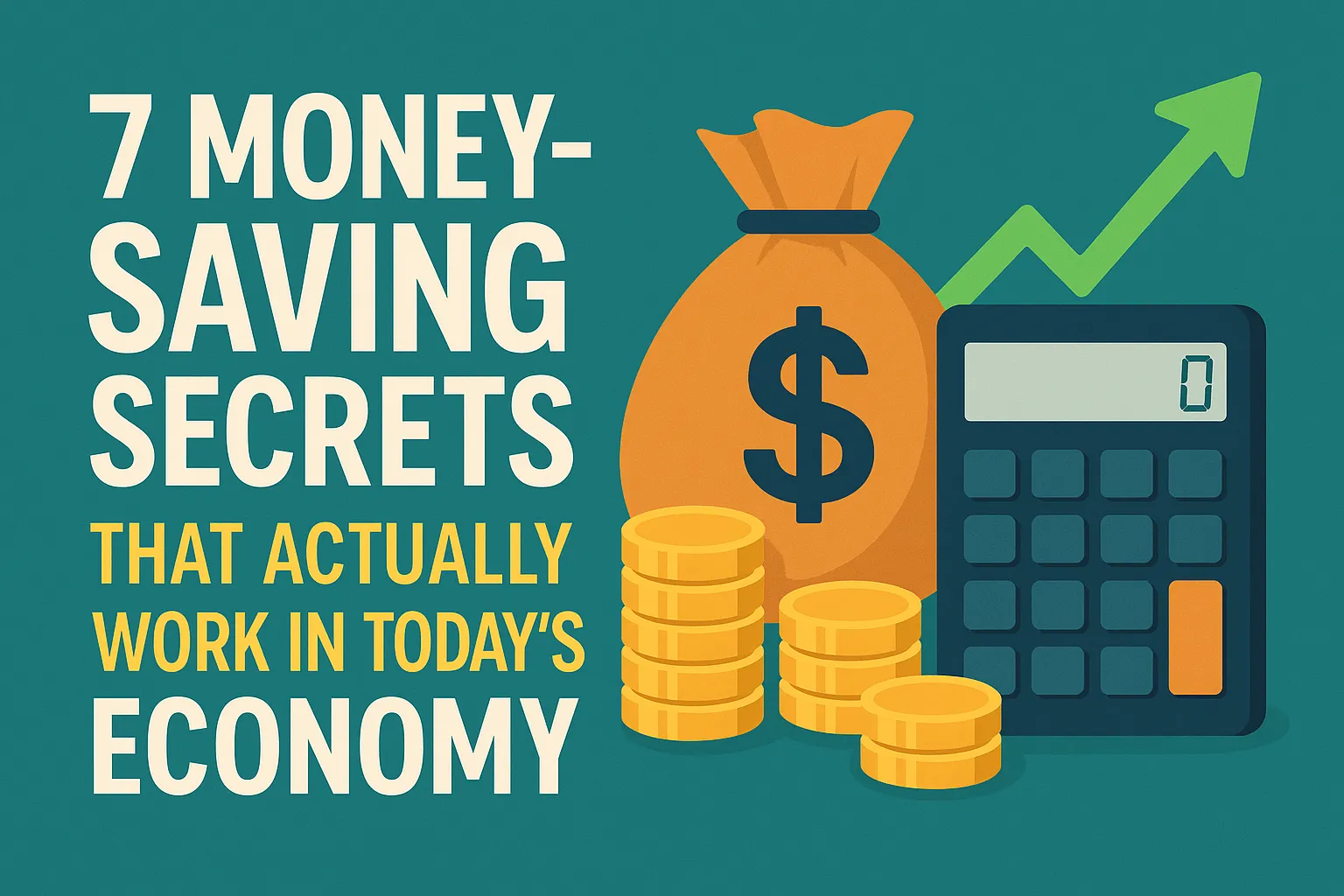7 Money-Saving Secrets That Actually Work in Today's Economy

In today's rapidly evolving economic landscape, saving money has become more crucial than ever. Inflation rates are soaring, and the cost of living continues to rise, leaving many individuals and families searching for effective strategies to stretch their dollars further. However, amidst the noise of countless financial tips and tricks, finding actionable advice that truly works can be challenging. This article promises to unveil seven money-saving secrets that are not only practical but also highly relevant in today’s economy. Whether you're looking to bolster your savings account, reduce unnecessary expenses, or simply gain better control over your financial future, these insights will guide you toward achieving your financial goals.
Embrace the Power of Budgeting Apps
In an age where technology reigns supreme, leveraging budgeting apps can be a game-changer for your finances. Apps like Mint, YNAB (You Need a Budget), and PocketGuard offer intuitive platforms to track your spending, set savings goals, and even alert you when you're close to exceeding your budget. These tools provide a comprehensive view of your financial health, allowing for informed decision-making.
"Budgeting apps have transformed how we manage money, offering real-time insights and fostering better financial habits," says financial advisor Suze Orman.
By consistently monitoring your expenses, you can identify patterns and make necessary adjustments to prioritize savings. The key is to select an app that aligns with your financial goals and personal preferences, ensuring it becomes a seamless part of your daily routine.
Automate Your Savings
One of the most effective ways to ensure you're saving consistently is to automate the process. By setting up automatic transfers from your checking account to a savings account, you can effortlessly grow your savings without the temptation to spend. This approach not only builds discipline but also creates a safety net for unexpected expenses. Many banks offer automated savings plans, and some even round up your purchases to the nearest dollar, transferring the difference into your savings account. This "set it and forget it" strategy can accumulate significant savings over time with minimal effort on your part.
Cut Down on Subscriptions
In today's subscription-driven world, it's easy to lose track of recurring expenses. Streaming services, gym memberships, and monthly subscription boxes can quickly add up, draining your finances without you even realizing it. Take the time to review all your subscriptions and determine which ones you truly use and value. Consider sharing subscriptions with family or friends to split the cost, or explore free alternatives that provide similar benefits. By eliminating unnecessary subscriptions, you can redirect those funds towards more meaningful financial goals.
Adopt a Minimalist Lifestyle
The minimalist movement emphasizes living with less and focusing on what truly matters. By adopting a minimalist lifestyle, you can significantly reduce your spending on non-essential items, declutter your life, and find contentment with less. This doesn't mean depriving yourself but rather being intentional about your purchases.
Start by decluttering your home and selling or donating items you no longer need. This not only generates extra income but also reinforces the mindset of valuing experiences over possessions. Over time, you may find that a minimalist approach leads to greater financial freedom and a more fulfilling life.
Take Advantage of Cashback Programs
Cashback programs offer a practical way to earn money on your everyday purchases. Credit cards with cashback rewards, apps like Rakuten, and store loyalty programs can provide significant savings if used strategically. The key is to pay off your credit card balance in full each month to avoid interest charges, ensuring you truly benefit from the rewards. By maximizing these programs, you can earn back a percentage of your spending, effectively reducing your overall expenses. Just be sure to read the terms and conditions carefully to understand how to maximize your rewards without falling into the trap of overspending.
Practice Meal Planning
Meal planning is an often-overlooked strategy that can lead to substantial savings. By planning your meals for the week, creating a shopping list, and sticking to it, you can avoid impulse purchases and reduce food waste. Cooking at home is generally more cost-effective than dining out, and it allows you to control portion sizes and ingredients. Consider batch cooking and freezing meals for convenience, ensuring you have healthy options ready for busy days. By incorporating more home-cooked meals into your routine, you'll likely see a positive impact on both your wallet and your health.
Explore DIY Solutions
Before rushing to purchase new items or hire services, explore do-it-yourself (DIY) solutions. Whether it's home repairs, beauty treatments, or crafting gifts, there are countless resources available online to guide you through the process. Platforms like YouTube and Pinterest offer tutorials and inspiration for a wide range of DIY projects. Not only can DIY solutions save you money, but they also provide a sense of accomplishment and creativity. By tapping into your resourcefulness, you can often find innovative ways to meet your needs without breaking the bank.
In conclusion, navigating today's economic challenges requires a proactive approach to money management. By implementing these seven money-saving secrets, you can take control of your finances and work towards a more secure financial future. Challenge yourself to adopt one or more of these strategies and observe the positive changes in your financial well-being. Remember, the journey to financial freedom begins with small, intentional steps.



